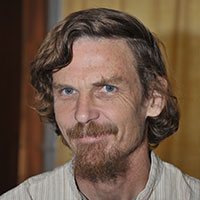What broad lessons have we learned from 115 studies on unconditional cash transfers?
Globally, around 700 million people currently live in extreme poverty, and in recent years, unconditional cash transfers have emerged as a popular tool for poverty alleviation in low- and middle-incom...
-
 Tommaso Crosta
Tommaso Crosta  Dean Karlan
Dean Karlan  Finley Ong
Finley Ong  Julius Ruschenpohler
Julius Ruschenpohler  Christopher Udry
Christopher Udry  20 June, 2025
20 June, 2025
- Articles
Food deprivation: A thali index reveals what poverty estimates do not
Poverty in India is typically estimated based on a poverty line that identifies the purchasing power needed to satisfy the daily calorific intake deemed necessary. In this post, Balakrishnan and Raj m...
-
 Pulapre Balakrishnan
Pulapre Balakrishnan  Aman Raj
Aman Raj  06 June, 2025
06 June, 2025
- Perspectives
Could better jobs for men have improved gender equality?
Evidence indicates that economic growth can improve gender equality. In this post, Sujata Balasubramanian suggests that India’s high-growth period from 1982-83 to 2011-12 failed to do so substantial...
-
 Sujata Balasubramanian
Sujata Balasubramanian  25 April, 2025
25 April, 2025
- Articles
Declining PDS leakages: A look at the numbers
Estimates have shown that leakages of foodgrain from the Public Distribution System declined from 42% in 2011-12 to 22-28% in 2022-23. Analysing new data from the Household Consumption and Expenditure...
-
 Prabhu Pingali
Prabhu Pingali  Raghav Puri
Raghav Puri  11 August, 2025
11 August, 2025
- Perspectives
A short history of MNREGA: 20 years in 10 charts
Launched in 2005, the Mahatma Gandhi National Rural Employment Guarantee Act (MNREGA) has completed 20 years. In this post, Drèze and Ramesh reflect on the programme’s achievements, failures, and f...
-
 Jean Drèze
Jean Drèze  Rahul R
Rahul R  31 July, 2025
31 July, 2025
- Articles
What broad lessons have we learned from 115 studies on unconditional cash transfers?
Globally, around 700 million people currently live in extreme poverty, and in recent years, unconditional cash transfers have emerged as a popular tool for poverty alleviation in low- and middle-incom...
-
 Tommaso Crosta
Tommaso Crosta  Dean Karlan
Dean Karlan  Finley Ong
Finley Ong  Julius Ruschenpohler
Julius Ruschenpohler  Christopher Udry
Christopher Udry  20 June, 2025
20 June, 2025
- Articles
Food deprivation: A thali index reveals what poverty estimates do not
Poverty in India is typically estimated based on a poverty line that identifies the purchasing power needed to satisfy the daily calorific intake deemed necessary. In this post, Balakrishnan and Raj m...
-
 Pulapre Balakrishnan
Pulapre Balakrishnan  Aman Raj
Aman Raj  06 June, 2025
06 June, 2025
- Perspectives
Could better jobs for men have improved gender equality?
Evidence indicates that economic growth can improve gender equality. In this post, Sujata Balasubramanian suggests that India’s high-growth period from 1982-83 to 2011-12 failed to do so substantial...
-
 Sujata Balasubramanian
Sujata Balasubramanian  25 April, 2025
25 April, 2025
- Articles
Do minimum wages reduce inequality in India?
Wage inequality in India has declined over the past two decades. This article examines the role of rising minimum wages in driving this trend. Exploiting state-level variations in legislative minimum ...
-
 Saloni Khurana
Saloni Khurana  Kanika Mahajan
Kanika Mahajan  Kunal Sen
Kunal Sen  19 February, 2025
19 February, 2025
- Articles
India’s poverty rate does not measure what you think it does
Like all national poverty rates, India’s poverty rate is interpreted as the share of the population that is poor in a given year. In this post, Merfeld and Morduch argue that, in practice, India’s...
-
 Joshua Merfeld
Joshua Merfeld  Jonathan Morduch
Jonathan Morduch  16 December, 2024
16 December, 2024
- Articles
The economics of begging
Informal estimates suggest that 60% of the world’s population engages in giving to beggars. This article provides a theoretical and empirical analysis of begging as an economic activity. Based on ob...
-
 Samreen Malik
Samreen Malik  Nishtha Sharma
Nishtha Sharma  12 December, 2024
12 December, 2024
- Articles
Poverty is bad – but is vulnerability worse?
Official data reveal that poverty in India has declined significantly over time. In this post, Kamila and Wadhwa make the case for policy discourse to shift towards the phenomenon of ‘vulnerability�...
-
 Anshuman Kamila
Anshuman Kamila  Sagar Wadhwa
Sagar Wadhwa  25 October, 2024
25 October, 2024
- Perspectives
In-kind transfers: Deadweight losses or gains?
Do in-kind transfers for social assistance lead to ‘deadweight losses’ by restricting consumer choice? This article presents findings from an experiment in Maharashtra, which involved offering low...
-
 Klaus Abbink
Klaus Abbink  Gaurav Datt
Gaurav Datt  Lata Gangadharan
Lata Gangadharan  Digvijay S. Negi
Digvijay S. Negi  Bharat Ramaswami
Bharat Ramaswami  16 October, 2024
16 October, 2024
- Articles
Impact of the Food Security Act on Public Distribution System
‘Leakages’ from the Public Distribution System – that is, grain released by the Food Corporation of India that fails to reach consumers – stood at around 42% in 2011-12 at an all-India level. ...
-
 Reetika Khera
Reetika Khera  03 October, 2024
03 October, 2024
- Perspectives
Grain subsidies and junk food purchases among low-income individuals
While governments rely on expensive food subsidy programmes to address malnutrition among low-income communities, their impact is unclear as only self-reported data on food purchase decisions are avai...
-
 Ali Aouad
Ali Aouad  Kamalini Ramdas
Kamalini Ramdas  Alp Sungu
Alp Sungu  23 September, 2024
23 September, 2024
- Articles
Twitter feed
Tweets by Ideas4IndiaMost Popular Poverty & Inequality Posts
Wealth inequality, class, and caste in India: 1961-2012
The level of wealth inequality in India is close to that of some highly unequal countries in the world. This article assesses the long-term evolution of wealth inequality in the country for the period...
 Nitin Kumar Bharti
Nitin Kumar Bharti  28 June, 2019
28 June, 2019
- Articles
Covid-19: What can be done immediately to help vulnerable population
With over 80% of India’s workforce employed in the informal sector and one-third working as casual labour, Covid-19's spread and subsequent unplanned lockdowns, have created economic havoc in the li...
 Reetika Khera
Reetika Khera  25 March, 2020
25 March, 2020
- Perspectives
A review of the coverage of PDS
The coverage of the Public Distribution System (PDS) has been of wide interest due to the pandemic and lockdown. Based on government data sources, Khera and Somanchi estimate the state-wise coverage o...
 Reetika Khera
Reetika Khera  Anmol Somanchi
Anmol Somanchi  19 August, 2020
19 August, 2020
- Perspectives





 31 July, 2025
31 July, 2025






